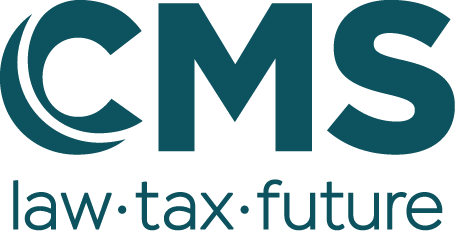European M&A Outlook 2026: Deals, Doubts and Divergences
According to CMS’s 2026 European M&A Outlook, half of dealmakers expect the level of European M&A activity to increase over the next 12 months, even in the face of considerable market volatility. The Outlook was published today in association with financial data firm Mergermarket.
Signs of recovery in 2024 were obscured in early 2025 by a pronounced period of market uncertainty, driven by trade tariffs. Deal volume in H1 was down by 11% relative to the same period in 2024 – however, aggregate transaction value proved more robust, rising by 3.6% year-on-year, demonstrating that dealmakers are still ready to put money to work for the right assets.
Louise Wallace, Head of the CMS Corporate/M&A Group, said: “While the first half of 2025 brought fresh and unexpected challenges—from tariff volatility to tightening financing conditions— European M&A continues to demonstrate remarkable resilience in the face of renewed uncertainty and the M&A landscape remains fundamentally healthy. Dealmakers are focused on transformational opportunities and strategic growth. As the market adapts to another ‘new normal’, we expect deal activity to strengthen across key sectors, in particular industrials & chemicals, TMT, and energy.”
Non-core divestments, digitalization and strategic growth
Respondents expect the greatest sell-side drivers of M&A activity in Europe over the next 12 months to be non-core asset sales from larger companies (42% of top-two votes) and, relatedly, distress-driven M&A (38%). Private equity divestments (36%, including 25% of first-choice votes) are also expected to feature prominently, with funds under pressure to return capital to investors.
On the buy-side, dealmakers expect a variety of factors to propel M&A, from undervalued targets (31%) and turnaround opportunities (also 31%) to supply-chain security (27%) and the ubiquitous drive towards greater levels of digitalisation (30%). Many corporates though have their sights set on strategic growth – the most anticipated driver for their acquisitions being transformational deals, with 38% identifying this as a top two reason, followed in second place by growth in new geographies and customer bases.
Securing financing
Most respondents (78%) expect financing conditions in Europe to worsen over the next 12 months, including 29% who believe it will be much harder to secure capital. Unsurprisingly, a large share of dealmakers identifies financing difficulties as a major hurdle to their M&A plans (34% of top-two votes).
Cash reserves are expected to be the most available source of finance (51%), followed by debt capital markets (38%). Moreover, two-thirds of the respondents (67%) are considering using alternative deal structures, such as convertible instruments and earnouts, as part of their M&A financing strategy over the next 12 months.
Prizing political stability
The Benelux region is expected to see the highest growth in M&A activity over the next 12 months, according to our respondent group (38% of top-two votes), followed by the UK & Ireland (29%) and Austria and Switzerland (27%). Respondents are quick to highlight the Benelux region’s supportive investment ecosystem and strong logistics capabilities. Broadly speaking, dealmakers are showing a preference for regions with higher levels of political and economic stability.
Cross-border concerns
Domestic dealmaking will come to the fore over the next 12 months. Among corporate respondents, 51% do not expect to undertake any cross-border M&A. Trade-related and other geopolitical volatility is clearly a point of concern – 26% of the respondents cite trade wars as a barrier to M&A, up from just 10% in last year’s survey.
Outlook for 2026
Despite pronounced market volatility, particularly in respect of EU-US trade policy, dealmakers continue to see opportunity in Europe. A number of positive tailwinds are expected to drive M&A in the near to medium term. European nations are spending more on infrastructure and defence, while regulators are taking steps to improve the region’s competitiveness and attractiveness to international investors.
Dr Malte Bruhns, Head of the CMS Corporate/M&A Group, added: ““Financing difficulties and valuation gaps continue to test the resolve of buyers and sellers, but the appetite for European assets endures. Private equity and corporates alike are pursuing both acquisitions and divestments, with distressed/turnaround opportunities and large transformational deals likely to drive momentum. Alternative financing and innovative deal structures are increasingly vital however, and we expect the market to reward those who adapt swiftly to these new realities”.












